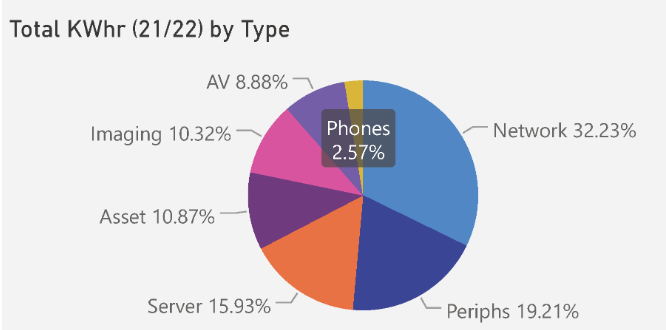The UK government's IT carbon footprint has got worse - the transparency is welcome

The UK government’s twelfth annual Digital Carbon Footprint reporting cycle has just wrapped up. The news is not good – but the transparency is welcome.
The report is led by the Department for Environment, Food and Rural Affairs.
Adam Turner, Head of Digital Sustainability at Defra, said on LinkedIn: “We cover over 47 Departments, Agencies and Bodies, 650,000 end-users [and] billions of annual spend. We calculate Scopes 1, 2, and 3 for all devices, hardware, network kit and servers and the services we consume like Cloud hosting.
“Guess what… we are consuming more,” he posted: “More Carbon, More Cost.
"As consumers we all need to look at that consumption and usage data as our baseline... and then design and deliver more efficient digital systems and services."

“It is easy to get distracted by market-based claims and dubious carbon offsetting schemes, but this boils down to who we procure with and what we design and deliver. The more we digitise in the name of sustainability, the more we consume.”
In CSO Futures' view, Turner's transparency is welcome. There is no shortage of organisations that use sustainability reporting merely as an exercise in positive story telling whilst obfuscating the real numbers or the fact that overall emissions are rising. It is this kind of baselining and transparency that can empower departments and lines of business to recognise that they have an ongoing challenge that needs meaningfully tackling.
UK government IT emissions
Defra’s Chief Digital and Information Officer (CDIO) Chris Howes emphasised the government’s challenge in last year’s report, noting that “the carbon footprint of ICT worldwide is on par with the aviation industry and is expected to increase.”
The latest full report and associated datasets are not public yet.
Last year’s report can be seen in full here. It notes that “there are some large disparities in data quality from departments. We altered the reporting in 2018 to try and improve accuracy but the results are ultimately reliant on departments providing accurate and complete returns… we will be seeking independent auditing of the returns from 2023 as we bake the data into the service design processes of UK Gov.”
Turner emphasised to CSO Futures that “We do not get to net zero by default.”
“Sustainability is a central skill for anyone working in digital/data.”
He added: “[we] need to design, deliver/manage digital services optimally to reduce carbon and remove waste from the system (ie.erroneous or legacy data)... you don't get greener by just pushing everything onto cloud for instance.”
“We have to be open. This boils down to skills in the sector and transparency from the suppliers, neither of which are anywhere near where they need to be. My data is also a massive under reporting because much of the scope 3 is estimates.and where quality data isn't available we have chosen not to include it. It is complex as we are talking end-user devices, network kit, masts, hubs, servers, cloud and then all the million of kgs of e-waste in UK gov alone.”
(Last year’s report also notes that the UK government disposed of over two million kilograms of IT assets in 2021 alone; 601,070 kilograms up year-on-year – although only a small proportion went to landfill, with much re-used or recycled.)







Member discussion